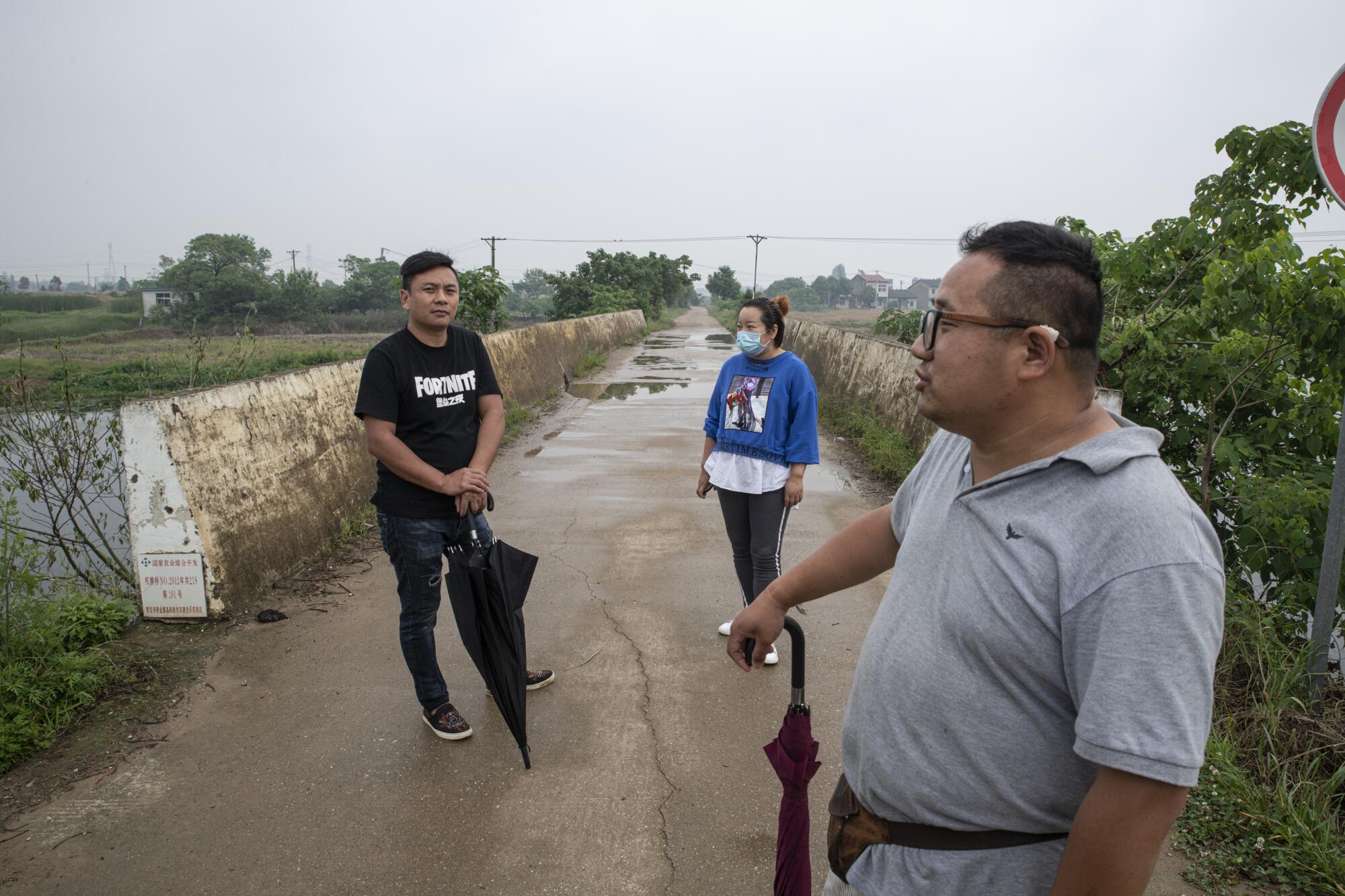
HUANGPI, China — The villager looked at the photograph of his dead grandmother. She would not be happy. Her ancestral altar was now blocked by canned drinks and dried rice noodles, stacked in a makeshift mini-mart in a home skirted by farm fields and graves that dated back thousands of years.
But the store was the only way Pan Bangfeng, a migrant worker, kept his kids fed through the lockdown. He usually traveled to do plumbing and electrical work for about $30 a day in Wuhan and other cities. Since January, though, he has been jobless at home, still struggling from hard times brought by the coronavirus.
He is among China’s more than 29 million rural migrant workers, most of whom were bottled up in villages and living with no income this winter. As China’s outbreak eases, migrants — especially those from Hubei province, who now face discrimination in the rest of the country — are bearing the brunt of the lockdown’s economic cost.
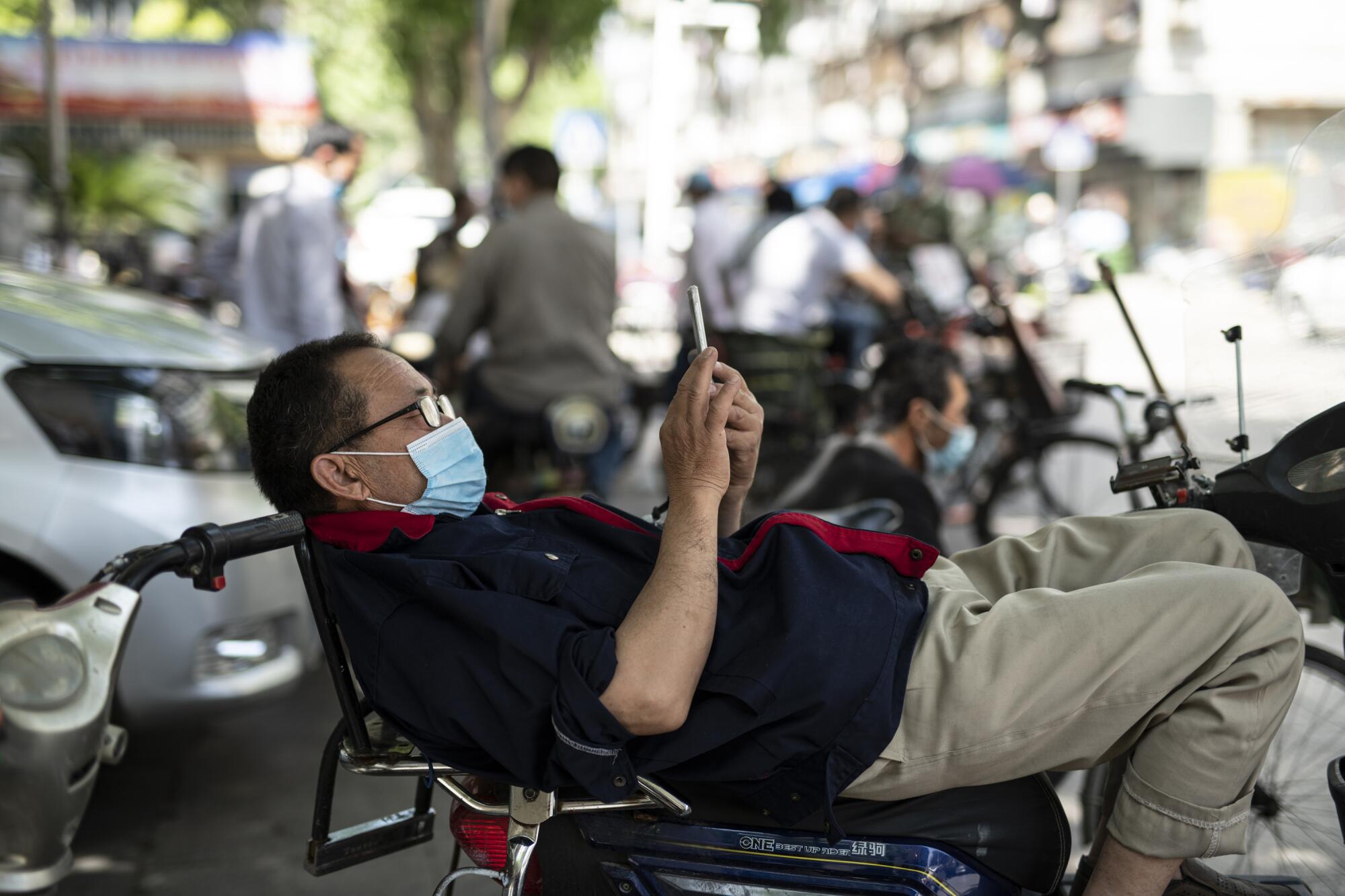
Under China’s hukou system, the household registration that divides Chinese citizens by their rural or urban origins, rural migrants who work in cities have restricted access to education, healthcare and other services. Many tend to work without contracts or social security in seasonal or short-term jobs like construction.
Theirs are small lives crushed by a reeling national economy. Gross domestic product has shrunk by 6.8% in this year’s first quarter for the first time in decades. Last week at Beijing’s annual political meetings, the Communist Party set no target growth rate at all for 2020. China is facing “challenges like never before,” said Premier Li Keqiang as he read the party’s pared-down economic goals.
The leadership focused on the nation’s greatest domestic challenge: jobs. It wants to create 9 million urban jobs to bring down a 6% unemployment rate that doesn’t include out-of-work migrants.
When the coronavirus hit Hubei, Pan and best friend Chen Wenxi, both 37-year-old migrants, had returned to this swath of 60 households for Lunar New Year. The village was sequestered, like most across China, and guards stopped outsiders.
Pan turned the entrance hall in his house into a mini-mart. He waited until dark, to avoid detection by village monitors, and drove his electric tricycle cart on a back road to the next village, where he picked up bulk orders of preserved vegetables, drinks and candy. He hustled his wares through a wire fence and returned home.
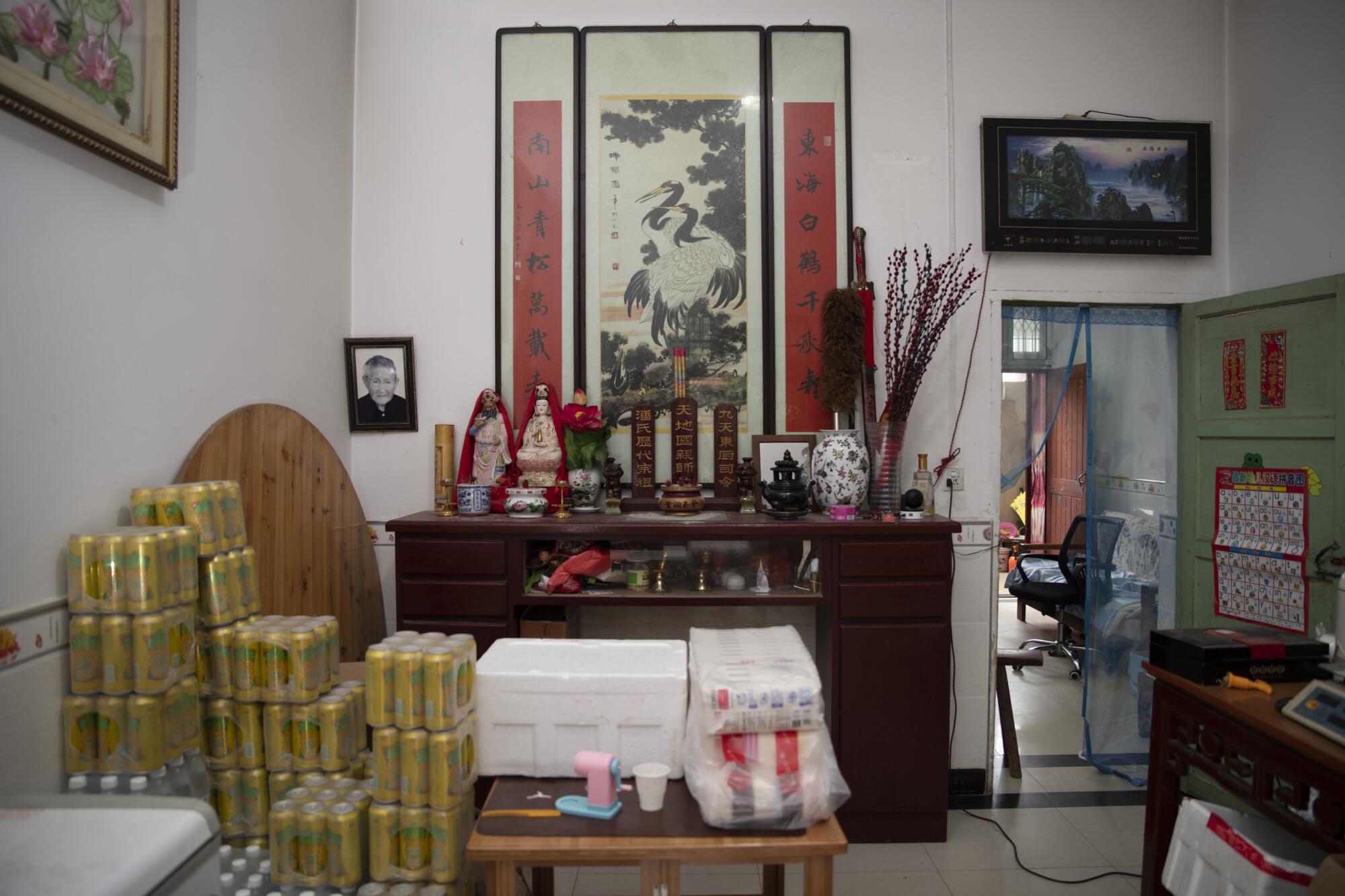
“It was like I was sneaking into another country,” Pan recalled.
The mini-mart helped his family survive, but they were burning through their savings. Things got worse when some of Pan’s supply routes were blocked. Produce became scarce. Most families had small gardens to feed themselves, but it was winter, with nothing to harvest.
“We ate a lot of congee with sugar and salt,” Chen said.
But Pan and Chen didn’t complain. The lockdown was necessary, they said. Everyone was afraid of the virus, and besides, their village had endured generations of political turmoil and poverty. Self-reliance was the best way to survive.
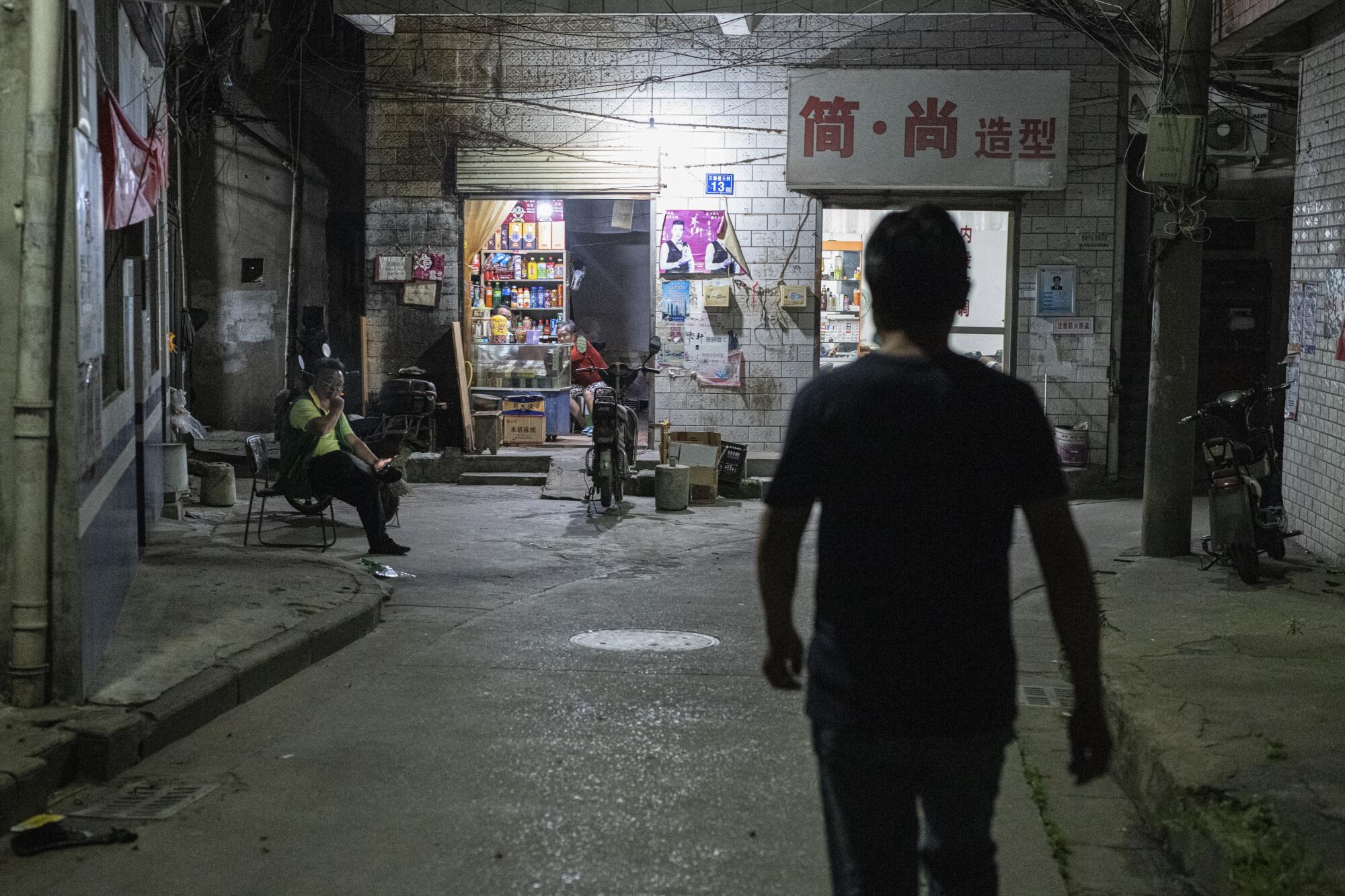
“This country doesn’t help you; you help yourself,” Pan said.
Such lessons came hard. In the 1960s, Pan’s grandfather used the wooden doors of their ancestral home to make a coffin for his brother, killed during the Cultural Revolution as a “counterrevolutionary” because he’d once worked on construction of a Nationalist Party building.
In the 1980s, Pan’s father had his doors ripped out by officials enforcing China’s one-child policy. They confiscated the doors along with the family’s furniture and valuables, saying it was part of a fine to punish them for having too many daughters.
Pan, who has one son and one daughter of his own, was also fined for breaking the one-child policy, which was lifted in 2015. No one took his doors, but life remained a burden.
Now that the lockdown has lifted, many migrants Pan knows have returned to Wuhan. They stand on street corners and roundabouts, waiting for day jobs in painting, plumbing, anything they can be paid for.
Work is scarce. Many who’d usually hire them were afraid of letting potential virus carriers enter their homes. Outside Hubei, it was worse — on paper, authorities had forbidden discrimination against Hubei workers. But many of the migrants said they had friends who’d been rejected in other regions.
“Lots of people have tried and come back. They look at your Hubei ID and say, ‘We don’t want you,’” said Wang Guoqing, 48. He had been working in Wuhan for more than 20 years, he said, but his hukou was still rural, which meant his family had limited access to the city’s schools, healthcare and social security.
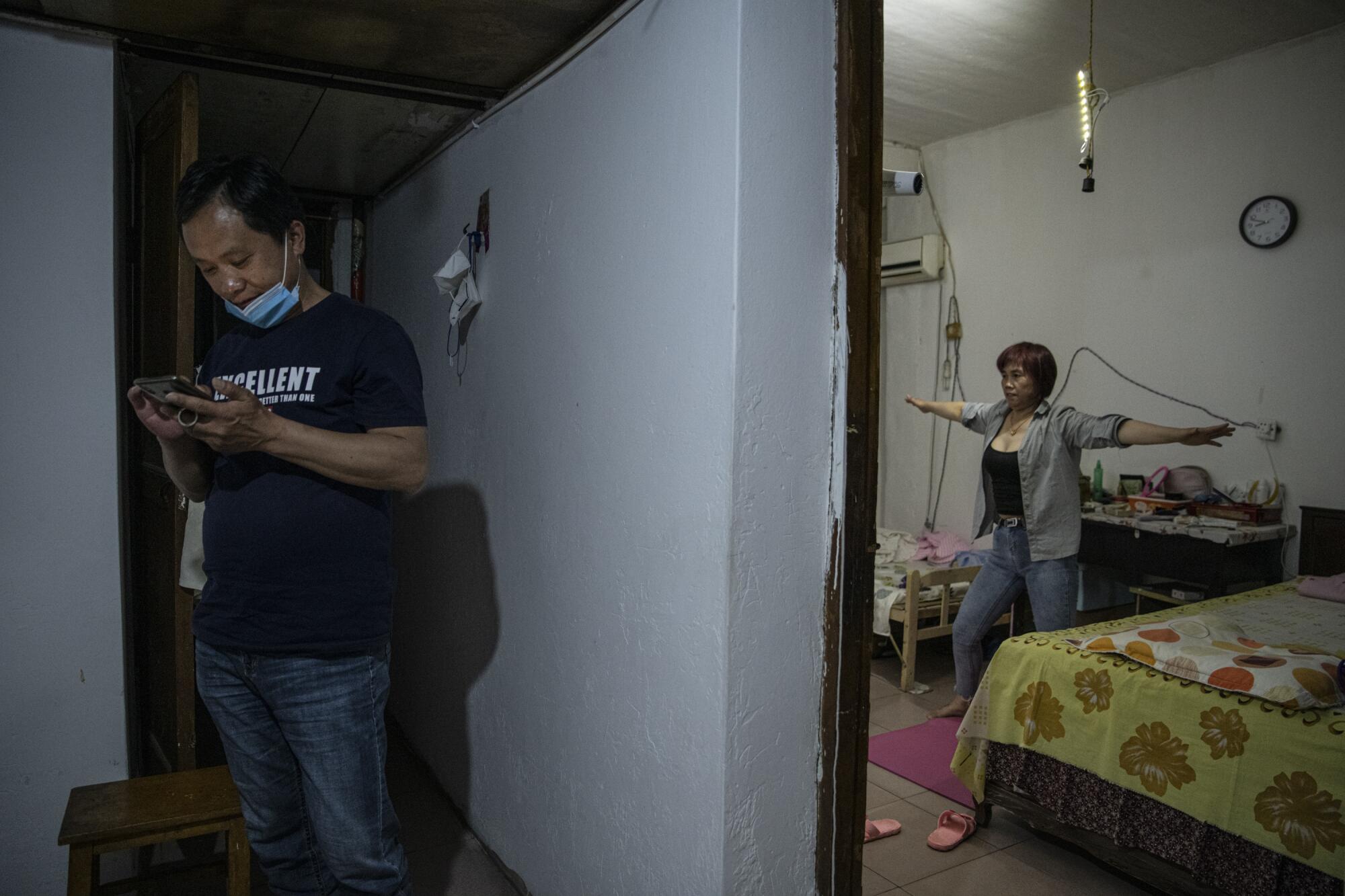
Wang’s wife worked as a part-time nanny. They lived in a one-bedroom apartment in an old neighborhood of Wuhan that was slated for demolition, paying $70 a month for rent. They went out at the same time every morning, but Wang often spent the day sitting at the roundabout, waiting for work that never came.
“This year, it’s too hard to survive. I don’t know how we’ll make it,” he said. His wife stayed positive. She’d dyed her hair red, wore cheap versions of urban fashions, and did aerobics every night at home.
Back in the village, Chen was waiting for a better time to leave. He worked in interior refurbishing and preferred to join work teams that could guarantee payment for a month or two, instead of accepting day labor here and there.
Chen has considered other prospects. He wore a T-shirt that said “Fortnite,” the name of a popular American video game. It was a gift from one of his friends, he said, a villager who’d become a pro gamer and then joined a livestream comedy team. It was one of those internet jobs that never existed for Chen’s parents — but he wasn’t sure if it was for him.
“My friend is stressed, too. He’s always thinking when he goes to bed, ‘How to be funny tomorrow?’” Chen said. “And if he wasn’t successful, everyone would call him a fool.”
Chen’s wife, an out-of-work kindergarten teacher, sat at home monitoring their fourth-grade son’s online lessons every day. They had no laptop, so he spent three hours a day watching school videos on her cellphone. The math lessons were OK, but he never did the P.E. videos.
“Boys don’t know how to do this,” he said, grimacing at a video of two women doing Pilates in slow motion. His younger cousin jumped on the bed, hugging a stuffed Totoro and a toy gun.
Pan and Chen grew up in this village. They were the first to work in the cities instead of farming like their parents, and hoped for a better future for their kids.
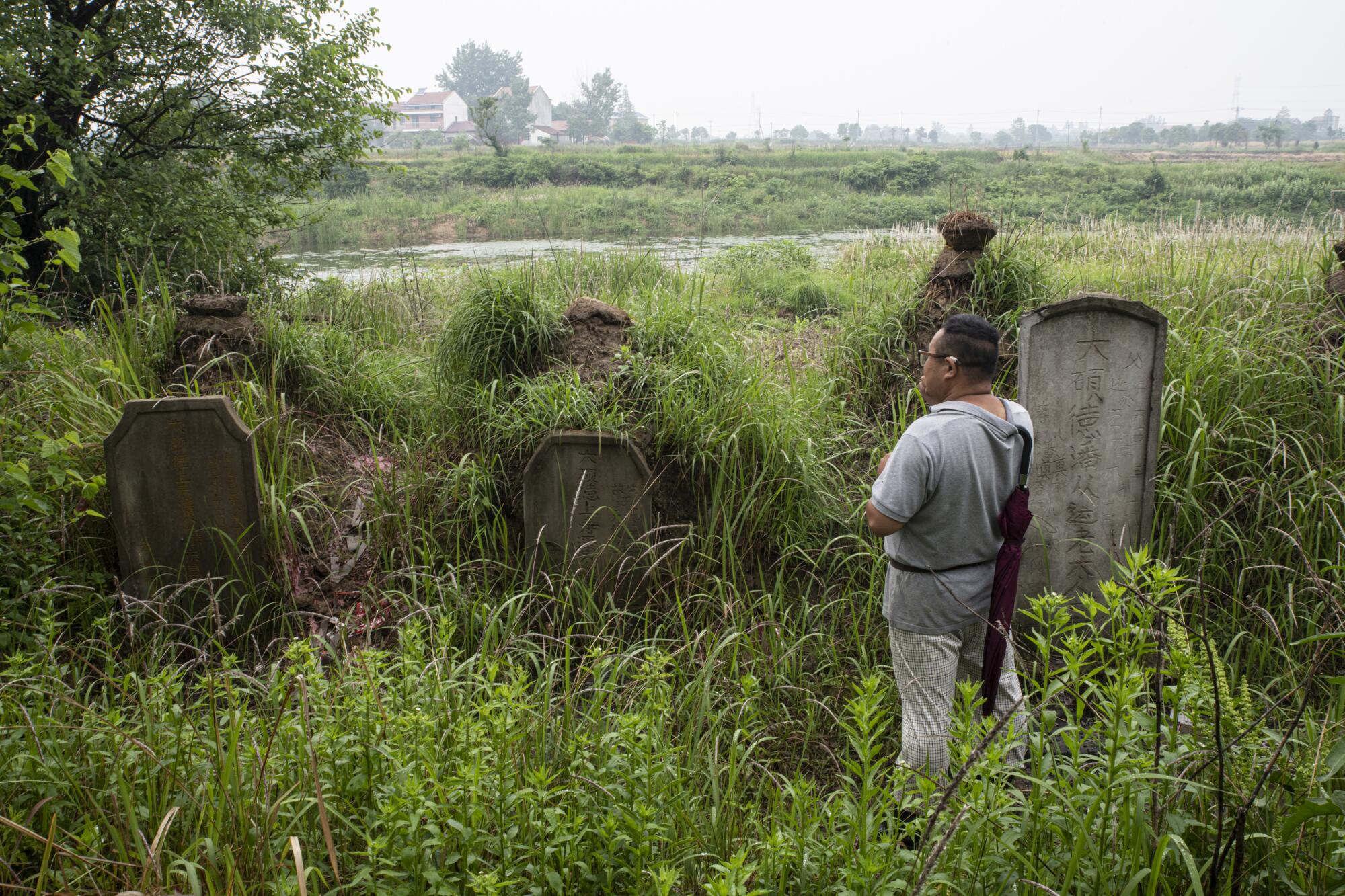
“I don’t want them to work on the land,” Pan said, trudging through a muddy field in rubber boots and an umbrella hooked onto his shirt. His family still had an allotted plot of land — not their own, because land is collectively owned by the village and ultimately belongs to the state, but a space they were allowed to farm.
Most of the villagers had let their farmland go to waste, though. It cost too much to till and sow and reap and sell. They could make more in a few months of city work than in a whole year on the farm. Wild weeds had taken over Pan’s family land.
But Pan also hoped his kids could stay in the village. A hundred generations of Pans have lived here, according to their ancestral records. Their graves were overgrown, tangles of brush pulling them into the earth, but they were here.
There were rumors the village might soon be merged with several others; residents would be moved into apartment complexes, their land farmed by a company. They would become part of China’s land reform and poverty alleviation policies, aimed at making better use of the land and upgrading rural migrants from villages to towns, on their way to becoming city people.
Pan understood. That was development, it was constant, and it happened from the top down, just like in his parents’ generation, when the Pan and Chen villages were forcibly combined.
“There’s no choice,” he said, walking on a concrete road that the state had paved in 2012, replacing the dirt trails behind the village.
It made life more convenient, Pan admitted. But he paused, wistful. A few years ago, he’d heard about a construction project near a village in Henan province. The workers stumbled upon an archaeological site, finding relics from the Shang Dynasty — circa 1600 BC.
“Sometimes you lose things that you can’t see. You never know what’s beneath your feet,” Pan said. His ancestors’ graves — including his grandmother’s — would probably be removed if that land turned into a mass farm. His kids might end up in the city, scrambling to survive just like him. His son had already missed kindergarten this year because of the coronavirus. In a few years, his village might not even exist.
So much was changing beyond his control. But he was glad, in this moment, on this field with summer coming, to be home.
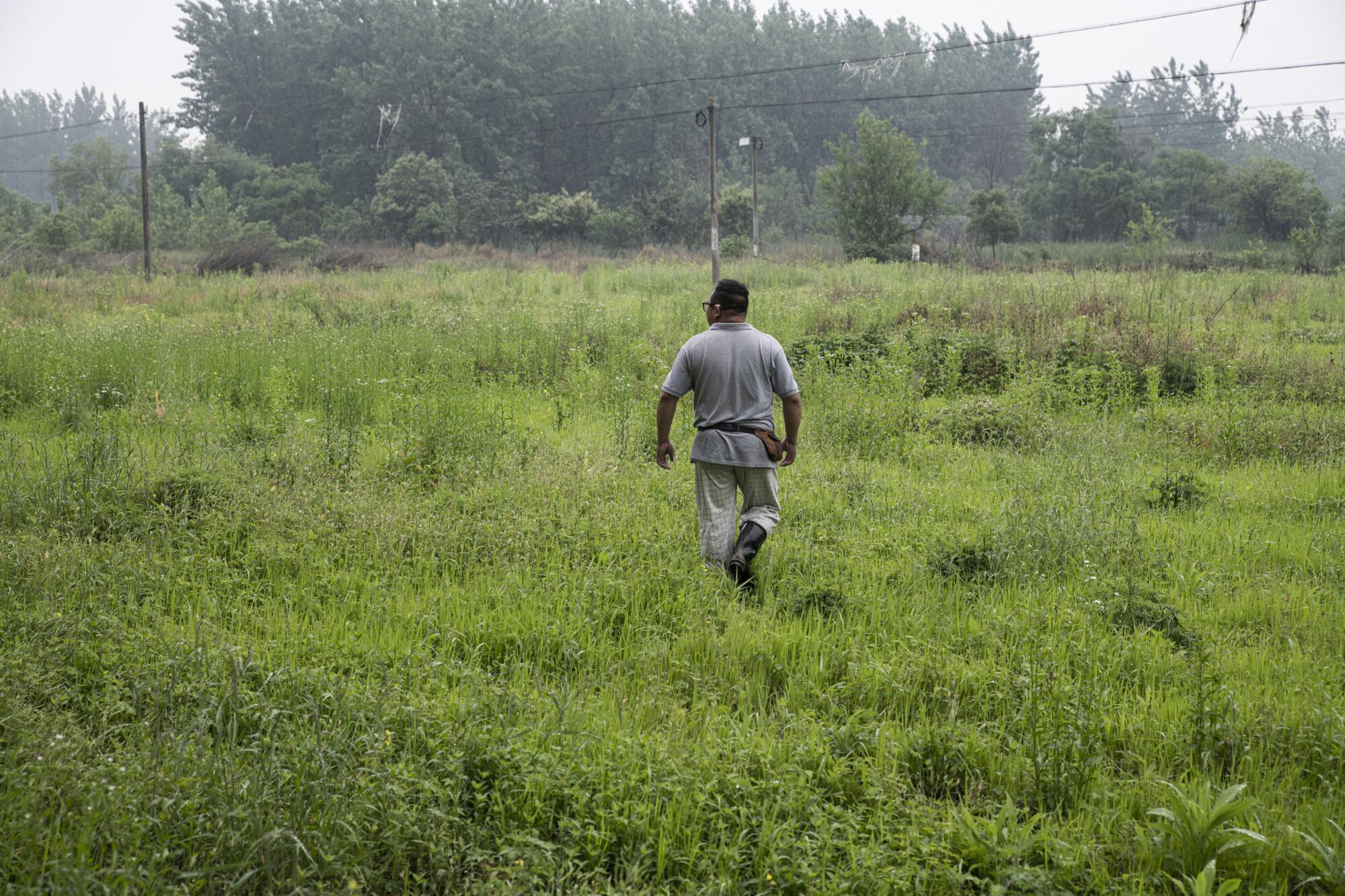
More to Read
Sign up for Essential California
The most important California stories and recommendations in your inbox every morning.
You may occasionally receive promotional content from the Los Angeles Times.











